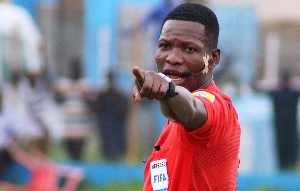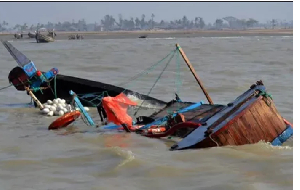Penplusbytes, in collaboration with the Ghana Oil and Gas for Inclusive Growth (GOGIG), has held its Second Power Reporting Series on Tax Treatment for journalists with a call to investigate and accurately inform citizens on oil taxation.
The forum is to help build and upgrade the capacities of journalists on the tax component of the Oil and Gas Sector and equip them with the tools to investigate to accurately inform the citizenry on petroleum taxation.
Studies have shown that about 11 different taxes on petroleum products currently prevail while on average, a litre of petrol is sold at GHC 4.49, half of which are actually taxes that go to government.
Taxes and levies that accrue on revenues in upstream oil production for the Government include Petroleum Income Tax, Corporate Tax, Additional Oil Entitlements, and Surface Rentals (a non-tax revenue), which are paid into the Petroleum Holding Fund.
However, the difficulty over the years has been citizens’ understanding of these taxes and how accountable both the oil companies and the Government are to the citizens.
The theme for the forum was: “Understanding Tax Treatments in Ghana’s Oil and Gas Sector,” and it was addressed by experts from the Ghana Revenue Authority (GRA), Petroleum Division, and some private tax consultants, which is also geared towards harnessing participants’ understanding of key mandates of the GRA among others.
Journalists from the Ghana News Agency, Business and Financial Times, Finder Newspaper, GBC Radio, GHOne, Goldstreet Business among others, participated in the forum that also discussed how effective Ghana mobilises and manages her petroleum revenue including surface rental.
Mr Gideon Ofosu-Peasah, a Policy Analyst at Penplusbytes, told the GNA in an interview that the last PIAC Report indicated that Ghana was losing hugely on surface rental.
He said the forum would help participants to understand the real state of Ghana’s surface rentals and what could be done to ensure the country did not lose those huge sums of monies.
Mr Samuel Sackey, the Head of Petroleum Unit at GRA, said the collection of surface rentals, a non tax revenue that was paid annually, had always been difficult.
However, 14 out of 17 oil companies had, so far, paid their surface rental fees while the rest were being engaged to pay up, he said.
He said companies usually paid their surface rentals in terms of the blocks assigned to them for petroleum operations in square kilometres.
Ghana’s oil royalties were mostly taken in kind from the oil companies, and that production was shared daily according to shareholding arrangements, he said.
“Our share of oil royalties go to GNPC who handles that in the name of Ghana,” Mr Sackey explained.
Mr Kwami Ahiabenu - II, the Executive Director of Penplusbytes, said the citizens were much concerned about the oil lifting and money and how it was spent.
He called on the media to focus and “follow the money on the side of the oil companies and on the lifting to best inform the public on the real facts, thereby ensuring accountability.
The Power Reporting series forms part of Penplusbytes’ “Enhancing the Role of the Media in Promoting Oil and Gas Sector Transparency and Accountability Project,” which is being funded by GOGIG.
Penplusbytes is a not-for-profit organisation driving change through innovations in three key areas, namely; using new digital technologies to enable good governance and accountability, new media and innovations, and driving oversight for effective utilisation of mining, oil and gas revenue and resources.
Business News of Sunday, 17 December 2017
Source: ghananewsagency.org
Journalists urged to inform citizens on oil taxation
Entertainment












